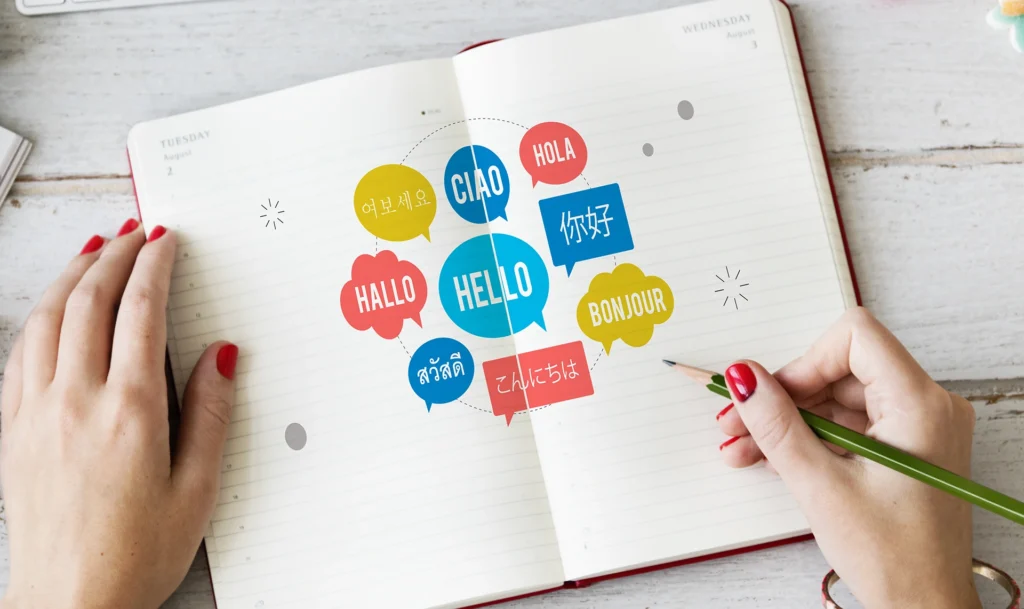Now Reading: Foreign Language Learning Techniques and Tips
- 01
Foreign Language Learning Techniques and Tips
Foreign Language Learning Techniques and Tips

Learning a new language is an important step for both personal development and professional growth. However, knowing which method to start with can sometimes be challenging. In this article, we will provide a comprehensive guide to language learning techniques. By covering various techniques suitable for different learning styles and goals, we aim to help you find the method that works best for you.
Why Are Language Learning Techniques Important?
Language learning techniques make the learning process more efficient and keep your motivation high. By using the right techniques, you can achieve more lasting results in a shorter time.
Foreign Language Learning Techniques
1. Regular Practice
- Daily Repetition: One of the most effective methods in language learning is to regularly review what you’ve learned. Repeating vocabulary, sentence structures, and grammar rules daily helps retain the information. This long-term practice improves your language skills and helps you become more fluent in the language you’ve learned.
- Keeping a Language Journal: Writing about your daily experiences in the target language is an effective way to practice. This method allows you to apply the vocabulary and sentence structures you’ve learned, and also enhances your ability to express your thoughts and emotions, strengthening your writing skills.
- Language Learning Apps: Apps like Duolingo and Memrise make language practice fun and encourage regular study. These apps help you expand your vocabulary, reinforce grammar rules, and improve your overall skills in the target language.
2. Listening Exercises
- Podcasts: Listening to podcasts in the target language not only improves your language skills but also deepens your cultural understanding. By listening to podcasts on various topics, you can learn the natural use of the language and pronunciation, as well as enrich your vocabulary.
- Listening to Music: Listening to songs in the target language makes learning enjoyable. Trying to understand the lyrics helps you learn new words and grasp the rhythm of the language. Additionally, singing along can improve your pronunciation.
- Watching Films and TV Shows: Movies and TV shows provide a rich resource for language learning. Watching with subtitles can enhance both listening and reading skills, and help you get accustomed to the pace of spoken language and everyday usage. This method broadens your vocabulary and shows you how the language is used in real life.
3. Speaking Practice
- Language Exchange Partners: Practicing speaking with language exchange partners allows you to actively use the language you’ve learned. This practice improves your speaking skills, helps you identify and correct mistakes, and familiarizes you with different accents and speaking styles.
- Language Courses: Taking classes with a professional instructor can accelerate your learning process. Courses help you understand grammar topics better and learn proper pronunciation techniques. You also get the opportunity to practice with fellow students.
- Language Clubs: Language clubs are environments where you can increase your practice by meeting with other language learners. These clubs organize various activities and conversation groups. This way, you can improve your language skills and gain confidence by using the language you’ve learned in social settings.

4. Reading Exercises
- Children’s Books: Children’s books written in the target language use simple and understandable language. These books are ideal reading materials for beginner students. By reading children’s books, you can learn grammar rules and basic vocabulary, and improve your reading speed.
- News Sites: Following current news on news sites in the target language improves your language skills and keeps you informed about world events. News articles help you learn formal language usage and discover new words on various topics.
- Blogs: By reading blogs related to your interests, you can learn the writing style and daily language usage in the target language. Blogs cover a range of topics from daily life to technology, health, and travel. This way, you can gain knowledge on topics of interest while also developing your language skills.
5. Writing Exercises
- Keeping a Diary: Keeping a diary is an excellent method for improving your writing skills in the language. By maintaining a diary, you can actively use the words and grammar structures you’ve learned, identify and correct your mistakes, and enhance your ability to express your thoughts in the target language.
- Writing to a Friend: Writing letters, emails, or messages to a language exchange partner or a friend with whom you can communicate in the target language is an effective way to practice your writing skills. This method provides an opportunity to use the vocabulary and language structures you’ve learned in real-life situations. Additionally, receiving feedback helps you correct your mistakes and improve your language skills.
What to Consider When Choosing Language Learning Techniques?
When choosing language learning techniques, there are several important factors to consider. Firstly, it is important to determine your learning style. Understanding whether you are a visual, auditory, or kinesthetic learner will help you choose the most suitable learning methods. Additionally, clarifying your language learning goals is crucial. Are you learning a new language for professional use or for travel?
Creating a learning plan that aligns with your goals will make the process more effective. Time management should also be considered; you should assess how much time you can dedicate to language learning each week and create a study schedule accordingly. Finally, review the resources available to you. You can support your learning process by utilizing various resources such as books, online courses, and language classes. By considering these factors, you can choose the most effective techniques for your language learning journey.
Tips for Success in Learning a Foreign Language
- Be Patient: Learning a language takes time. Don’t expect quick results.
- Stay Motivated: Find methods to keep yourself motivated. For example, set language learning goals and reward yourself for achieving them.
- Don’t Fear Making Mistakes: Making mistakes is a natural part of the learning process.
- Practice Regularly: Instead of short, intense practice sessions, regular, brief periods of study are more effective.
This guide on language learning techniques will help you on your journey to learning a new language. Remember, the most important thing is to practice regularly. By trying the techniques mentioned above, you can find the one that works best for you and achieve your goals.


































